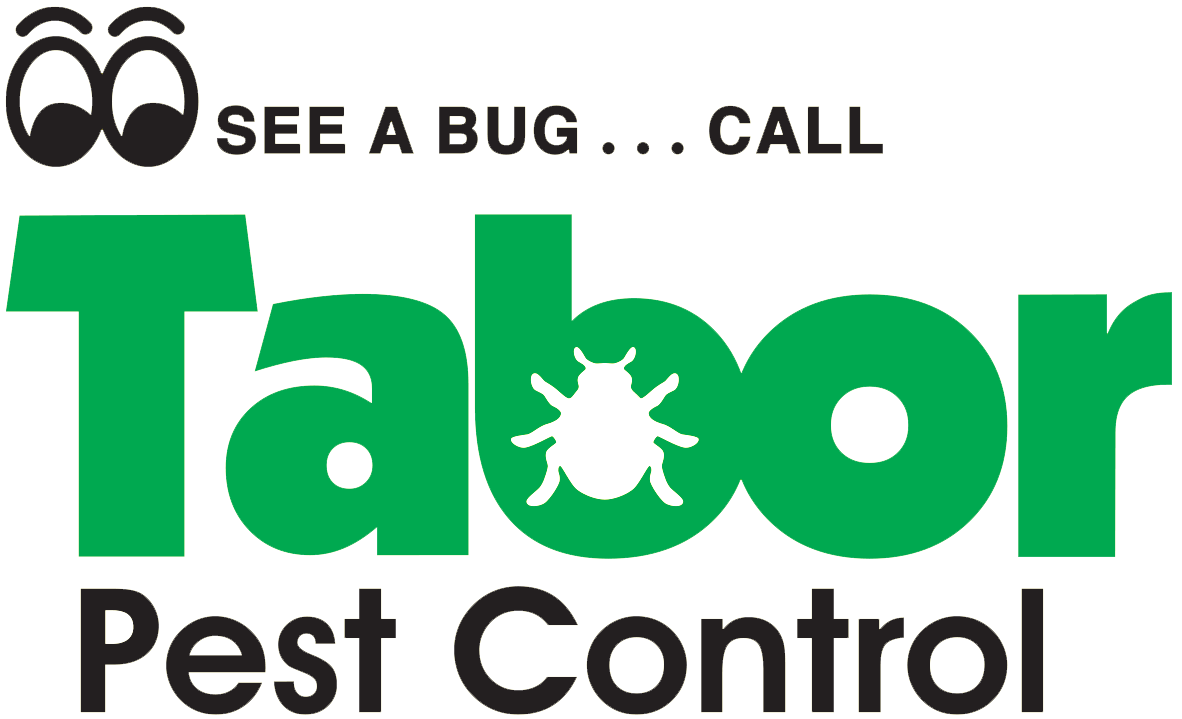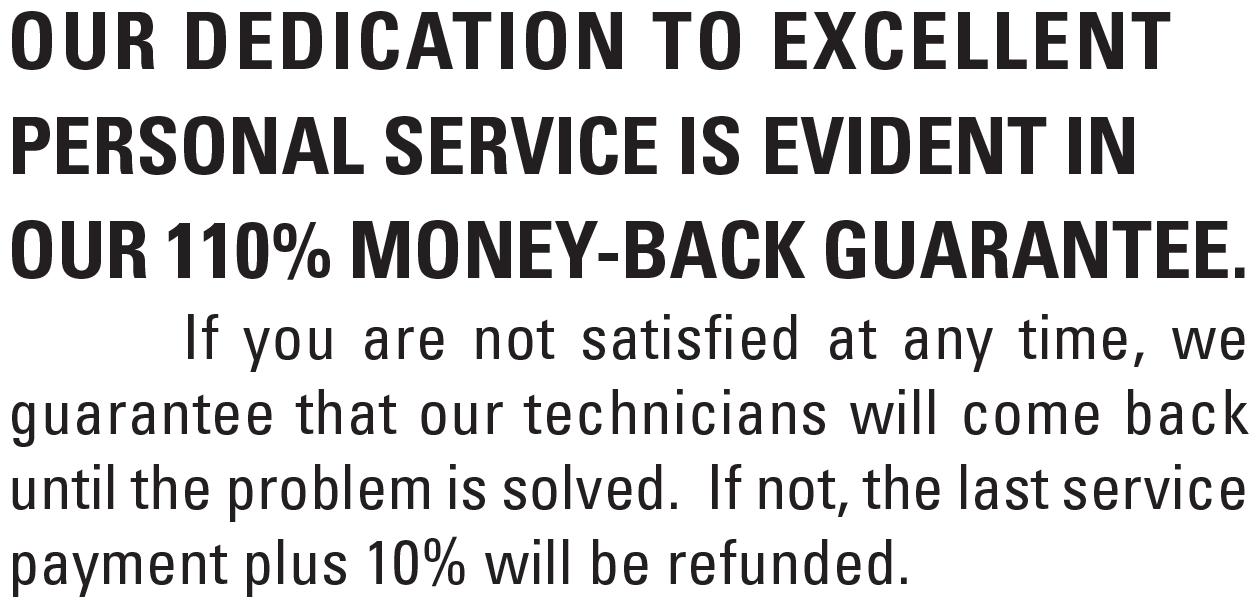Posts Tagged ‘Commercial Pest Control’
Immediate Intervention: Emergency Pest Control for Commercial Properties
Posted on: November 21st, 2023 2 CommentsBusiness is all about efficiency and productivity. A good business runs like a well-oiled machine. Pests are like rust for that machine. They find a way in, disrupt everything, and spread.
Pests can cause various problems for commercial properties, including property damage, food contamination, and the spread of disease.
Infestations can quickly become a nightmare by damaging furniture and electrical wiring, creating health code violations, spreading disease, and hurting your overall customer experience.
All of these problems result in temporary halts in operations and loss of productivity. If not quickly resolved, this can be devastating to any business.
An expert team member at Tabor Pest Control can help prevent these problems for your business by identifying and eliminating pests before they cause serious problems.
Does Your Business Have a Pest Emergency?
Some pest problems stand apart as truly disastrous to businesses. Here’s how to identify and respond to these emergencies.
⚠️ A pest emergency is any pest problem that completely halts business operations or could risk human safety. Some common examples include severe damage to a building or essential piece of machinery, contamination of food/inventory, or spread of disease.
This is obviously a situation that requires immediate attention in order to resume business as usual. When the stakes are this high, seeking professional help is vital for your business to continue running.
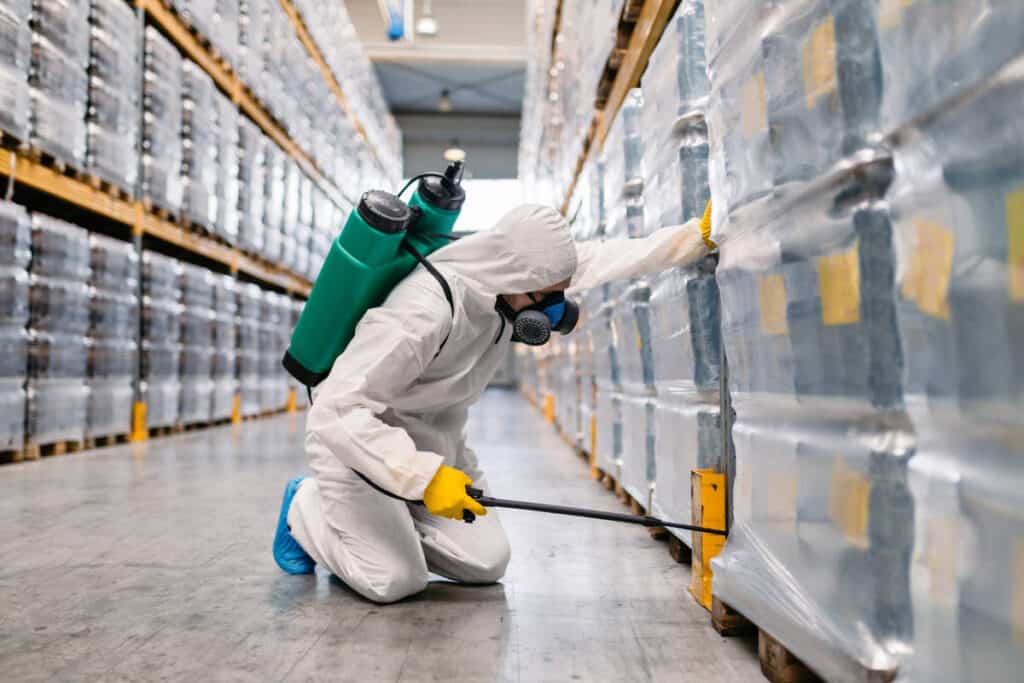
Tabor Pest Control has experience in these situations and provides highly responsive service to get you back on your feet.
The Costs of Delaying Pest Control Treatment
1. Financial Consequences
There are obvious financial repercussions to any halt in operations. When your business can’t produce the products or services you provide, you and your business can’t make money.
Of course, there is also the potential for extensive costs related to repairing or replacing damaged goods, equipment, and infrastructure.
2. Damage to Reputation
In addition to the financial consequences of being unable to fulfill your orders, there can also be damage to your business reputation.
Customers expect to receive what they paid for and may be very upset if there is any delay.
3. Health Risks
Last but not least is the health considerations. Severe infestations and contaminations can cause serious health risks for both employees and customers through food contamination and the spread of disease.
Your people can also be at risk of physical injury due to accidents caused by damaged equipment or compromised building structures.
Addressing these issues as quickly as possible is crucial to minimize these dangers.
Let Tabor Pest Control Take Control of Your Pest Problems

First, it is essential to ensure the immediate safety of your employees and customers by assessing the situation and halting any operations that may have been compromised by the pest emergency.
Close off any areas that may be unsafe and dispose of any food or inventory that has been contaminated.
The situation will be dealt with quickly, and you can resume business activities soon.
Tabor’s Emergency Response Plan
Each emergency is unique, whether it’s for a restaurant or a warehouse, and requires a personalized approach. Tabor will work with you and your schedule to provide the treatment that is best for your business.
Our experts will quickly arrive on the scene and assess the situation, identifying the pests and sharing with you the potential risks.
We will then develop a treatment plan specifically for you and implement it with the latest pest control technology.
We also schedule follow-up visits with you to ensure that the pests have been completely eradicated and to work with you to prevent future issues.
Tabor has over 60 years of experience dealing with emergencies like this in the Southern Alabama and Southern Georgia area and will work tirelessly to get your business back in business.
FAQs
How quickly can Tabor Pest Control respond to an emergency pest situation?
Tabor Pest Control prioritizes emergencies, offering swift responses to urgent pest outbreaks. Our goal is to assess and address your pest emergency with teams on standby for rapid deployment.
What steps does Tabor take to ensure the safety of our customers and staff during emergency treatments?
The safety of your customers and staff is our top priority. Tabor Pest Control uses safe, regulated methods for pest elimination, ensuring compliance with all health and safety guidelines. We communicate all necessary safety measures and precautions before and during treatment.
Are emergency pest control treatments more expensive than regular treatments?
The cost of emergency pest control services can vary based on the severity and extent of the infestation. Tabor Pest Control provides transparent pricing and works with clients to ensure they receive the best value and effective solutions for their urgent pest control needs.
How can businesses reduce the likelihood of needing emergency pest control?
Regular inspections and preventative treatments are key to reducing the risk of infestations. Tabor Pest Control offers comprehensive pest management plans tailored to your business needs, helping to minimize the chances of unexpected pest emergencies.
References
- https://www.fdacs.gov/Business-Services/Pest-Control/Pest-Control-FAQ
- https://www.nyc.gov/site/doh/health/health-topics/pests-and-pesticides.page
- https://www.nyc.gov/site/doh/health/health-topics/pests-and-pesticides-building-owners.page
- https://www.nyc.gov/assets/doh/downloads/pdf/pesticide/select-mgmt-prof.pdf
- https://www.epa.gov/safepestcontrol/dos-and-donts-pest-control
- https://dchealth.dc.gov/service/rodent-and-vector-control-division
Tags: Commercial Pest Control
Posted in Prevention & Control | 2 Comments »
Commercial Termite Control: 5 Must-Know Tips for Commercial Termite Control
Posted on: October 25th, 2023 1 CommentTermites can be devastating to any business, causing extensive damage to your property and creating an unsafe work environment.
In order to prevent this and keep your business safe from these pests, it is crucial to understand a little bit about the insects themselves and how to get rid of termites from your commercial property.
Importance of Termite Control for Businesses
Repair Costs
The most direct impact of termite infestations on unlucky businesses is the cost of repairs. Termites can be highly destructive and can cause extensive structural damage.
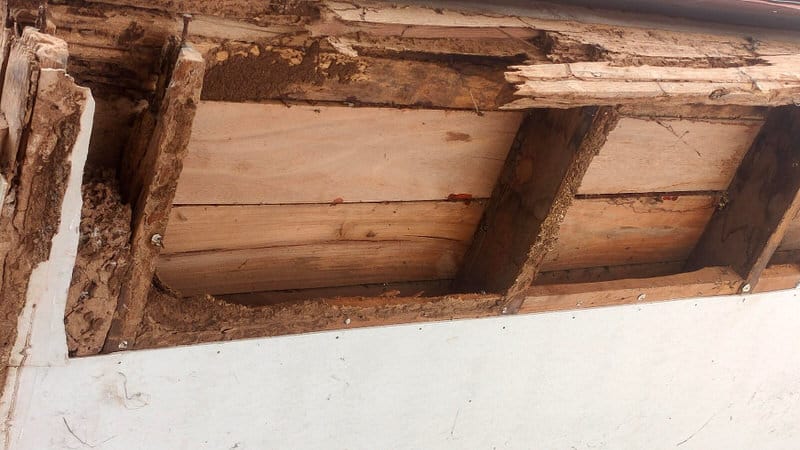
Wood is a primary food source for termites. So, the longer they are present in a building, the more damage they will cause.
Business Closures
Termites are also known to cause significant indirect problems, like closures. Damaged property may no longer be fit for business operations and may need to be closed during repairs.
This can negatively affect both revenue and reputation if not quickly resolved.
Decreasing Property Values
A termite infestation can also discourage future buyers from investing in a property because of concern for potential lasting damage.
How to Prevent an Infestation
The best way to avoid termite problems is never to allow them onto your property in the first place.
Here are some easy steps to deter these pests:
- Do not allow excess moisture or sitting water to remain in the building
- Minimize wood-to-ground contact by putting your building on a slab that is above ground level
- Ensure proper ventilation and seal all cracks and crevices
- Store all wooden materials, organic waste, and untreated wood away from the building
Signs of an Infestation at Your Workplace
Early detection is crucial to deal with a termite infestation before it gets out of control. Luckily, there are several signs that you can look for.
1. Mud tubes
Termites build these tubes using soil, wood, and other debris to create a pathway from their colony to the food source.
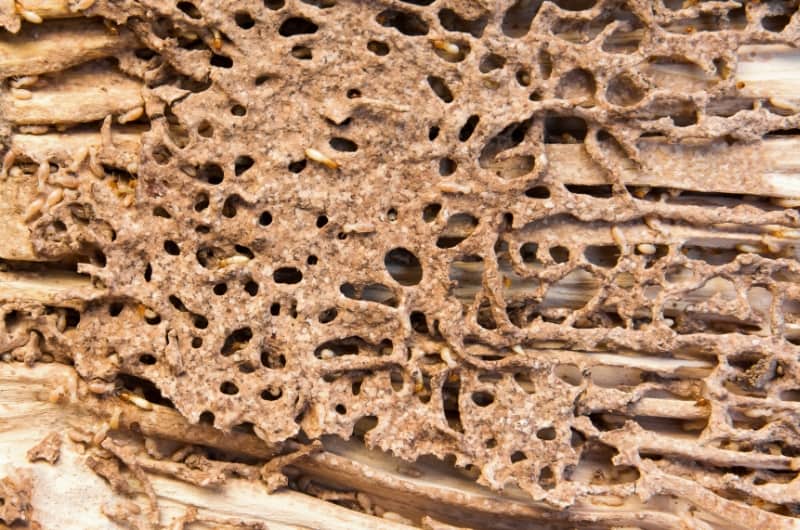
Look for them around the foundation of your building, as well as on walls and other wooden structures.
2. Discarded wings
Keep an eye out for piles of discarded wings near doors, windows, and other entry points. This is often one of the first signs that termites have settled into your property.
3. Wood damage
Termites feed on wood, so check for any signs of damage in vulnerable areas like wooden beams, furniture, and storage structures. Inspect these by probing them with a screwdriver – if the wood feels spongy or sounds hollow, it may be infested.
If you do observe any of these signs on your property, it is important to deal with the situation quickly.
Contact us at Tabor Pest Control to conduct a professional inspection and develop a treatment plan.
Commercial Termite Treatment Solutions
Every termite infestation can be a little different, so it’s important for us to work with you to develop a personalized treatment plan.
The process will, of course, start with a professional inspection. After that, there are many treatment methods that can be used to address a termite issue.
Here are some of the most common treatment methods:
1. Liquid treatments
Typically, it involves the use of a liquid termiticide, which is applied to the soil around the building’s foundation to create a protective barrier. Liquid treatments can be highly effective in preventing termite infestations and eliminating existing ones.
2. Bait systems
Involve placing bait stations around your property, which contain a termite-attractive substance infused with a slow-acting insecticide.
Termites feed on the bait and bring it back to their colony, eventually killing the entire infestation.
3. Direct chemical treatments
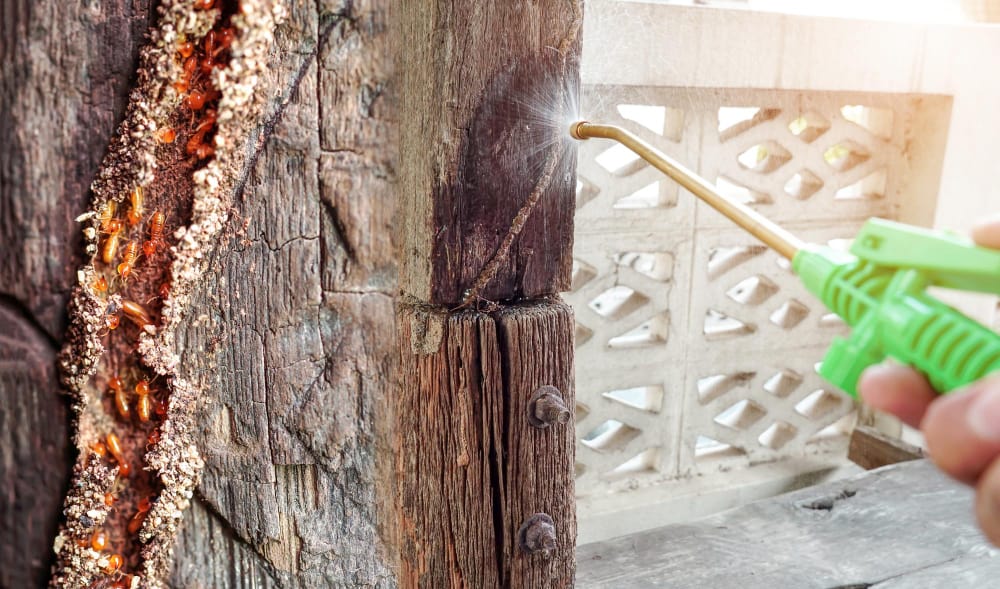
Involve injecting chemicals, such as foams or dusts, directly into termite-infested areas to eliminate the pests. These treatments can be particularly effective for localized infestations.
4. Physical barriers
Involve installing physical barriers, such as metal, mesh, or plastic, around the foundation or other vulnerable areas to prevent termites from reaching the structure. While not a standalone treatment, physical barriers can be a useful addition to other termite control methods.
5. Natural treatments
Examples of options can include introducing predator insects like nematodes, encouraging natural termite predators like birds or ants, or using botanical termiticides.
While natural treatments may not be as effective as chemical options, they can be a safe and eco-friendly choice. Choosing the right treatment approach will not only solve your current problem but will also prevent future issues.
You want a commercial pest control company that has experience working with similar situations and that is able to address your personal needs.
Tabor Pest Control has been providing high-quality commercial termite control services to the Southern Alabama area for over 60 years.
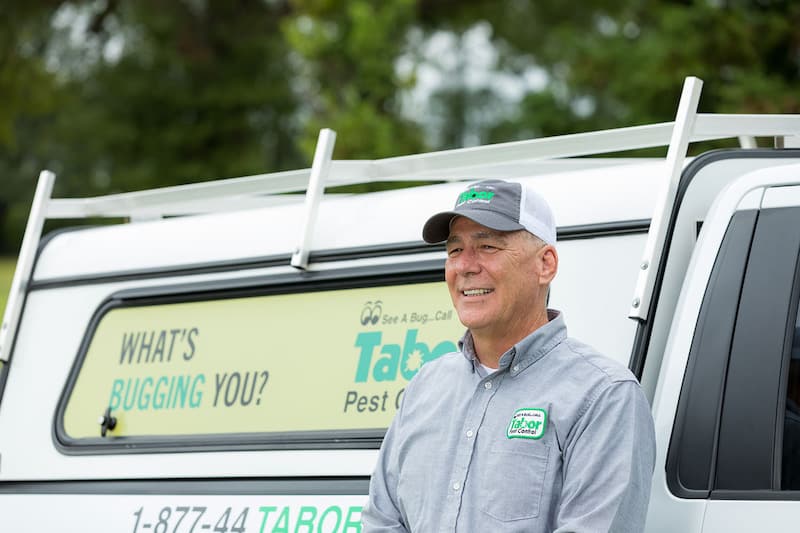
We pride ourselves on our customer service and our personalized approach to doing business.
FAQs
What are the most effective methods for commercial termite extermination?
There are several proven methods for commercial termite extermination. The most common methods include liquid barrier treatments, baiting systems, and fumigation.
Liquid barrier treatments involve applying a chemical solution to the soil surrounding your property, which prevents termites from accessing the building.
Baiting systems use strategically placed bait stations to attract and kill termites.
Fumigation is reserved for severe infestations and involves sealing off your property and filling it with a gas that kills termites.
Which chemicals are commonly used in professional termite treatment?
Professional termite treatment often involves the use of chemicals such as fipronil, imidacloprid, and chlorantraniliprole. These are insecticides specifically designed to target termites while having minimal impact on the environment and other creatures.
It’s crucial to follow the guidelines and safety protocols associated with these chemicals to ensure effective and responsible termite control.
What are the costs associated with commercial termite control services?
the cost of commercial termite control services can vary significantly depending on factors such as the size of your property, the extent of the infestation, and the treatment methods used.
Typically, businesses can expect to spend anywhere from a few hundred to several thousand dollars for termite control services.
How often should businesses have termite inspections and treatments?
The frequency of termite inspections and treatments depends on factors such as your property’s location, level of risk, and history of termite infestations.
As a general guideline, most businesses (like restaurants) should have a termite inspection at least once a year, with more frequent inspections recommended in high-risk areas or properties with a history of infestations.
Regular inspections and treatments help ensure early detection and management of termite problems, preventing costly damage and disruptions to your business.
What certifications or licenses are required for commercial pest control technicians?
In most regions, commercial pest control technicians should have specific certifications or licenses to legally provide termite control services.
These requirements may vary depending on local regulations. Generally, technicians must complete a combination of classroom education and on-the-job training and pass exams to become certified or licensed.
It’s essential to verify that the pest control company you choose employs qualified and trained technicians who meet the necessary requirements for your region.
Are the chemicals used in termite treatments safe for my staff and customers?
Termite control chemicals are generally safe when applied by trained professionals according to label instructions.
However, it’s crucial to inform your staff and customers about the treatment, take necessary precautions, and follow any safety guidelines provided by the pest control provider to minimize exposure risks.
What is the difference between termite control for new constructions vs. existing buildings?
Termite control for new constructions often involves pre-construction preventive measures, such as installing physical barriers or treating the soil.
For existing buildings, termite control focuses on inspections, identifying infestations, and implementing treatment options, such as baiting systems or soil treatments, to eliminate termites.
How long does a typical commercial termite treatment last?
The duration of termite treatment effectiveness can vary based on factors like the treatment method, type of termites, and environmental conditions.
Some treatments provide protection for several years, while others may require regular maintenance to remain effective. Your pest control provider can offer specific information based on your situation.
Can termite infestations affect the value of a commercial property?
Yes, termite infestations can potentially impact the value of a commercial property. If left unaddressed, termites can cause structural damage and require costly repairs.
Sellers are often required to disclose termite issues, which can affect negotiations and property values.
Regular termite inspections and proactive control measures can help protect property values.
References
- https://www.fdacs.gov/Business-Services/Pest-Control/Licensing-and-Certification
- https://www.epa.gov/safepestcontrol/termites-how-identify-and-control-them
- https://extension.umd.edu/resource/termites
- https://ipm.ucanr.edu/PMG/PESTNOTES/pn7440.html
- https://www.epa.gov/minimum-risk-pesticides
Tags: Commercial Pest Control, Termites
Posted in Prevention & Control | 1 Comment »
Commercial Pest Control for Warehouses: No More Pests!
Posted on: October 2nd, 2023 3 CommentsPest control is a crucial aspect of warehouse maintenance that is often overlooked. Pests can be extremely damaging to a wide range of physical products when not adequately controlled.
This can, of course, be very harmful to the goods stored in the warehouse, customer relationships, and the business’s reputation.
Risks of a Warehouse Pest Infestation
Pests can be a major headache for a warehouse, causing disruptions in operations and straining customer relations and reputation.
1. Disease Transmission
Pests such as rodents, insects, and birds can carry various diseases and bacteria. These can contaminate your products, putting end-users at risk and leading to potential health concerns.
It’s vital to maintain a pest-free environment to ensure the health and safety of your employees as well as your customers.
2. Damage to Inventory and Infrastructure
Rodents, in particular, tend to chew through packaging materials and gnaw on structures, potentially compromising the integrity of your products.
This can lead to financial losses and undermine the quality of your goods.
3. Contamination of Products
Pests can introduce dirt, bacteria, and allergens to your products, making them unsuitable for sale. This can lead to customer complaints, product recalls, and possible legal action.
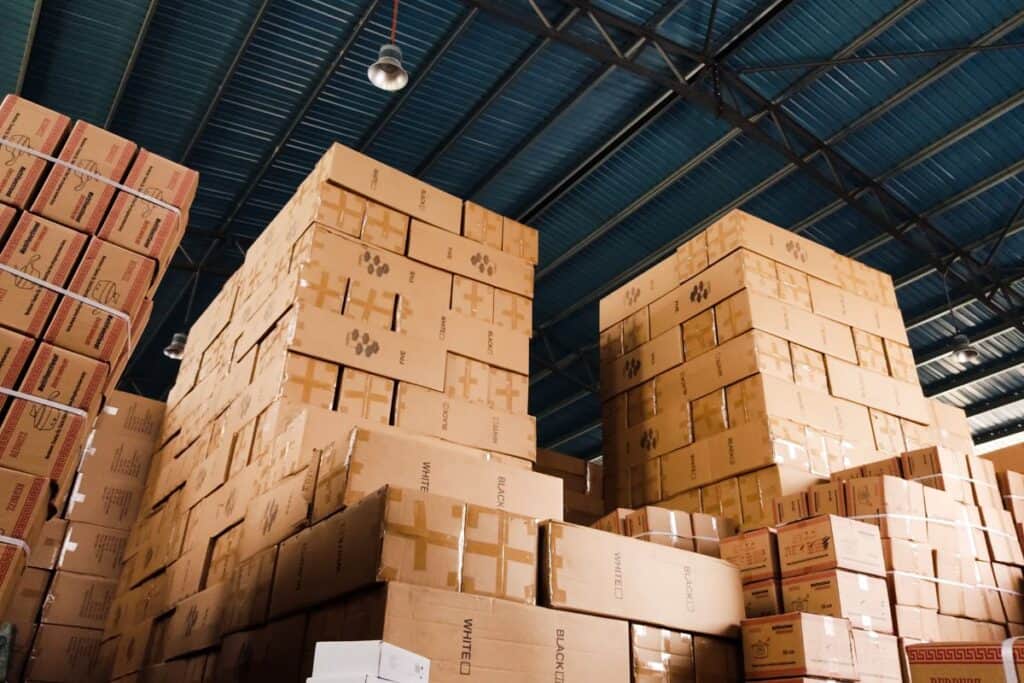
Maintaining a clean, pest-free warehouse is crucial in minimizing these risks and maintaining the quality of your goods.
4. Decrease in Productivity
The need to deal with pest-related issues can divert their attention from their job duties, decreasing efficiency.
A pest-free environment enhances your workers’ productivity and ensures a safe and healthy workspace.
5. Business Reputation
Customers expect the products they purchase to be free of contaminants and safe for consumption.
If word gets out that your warehouse has a pest problem, it may result in lost customers, decreased sales, and a damaged reputation.
Understanding the Common Warehouse Pests
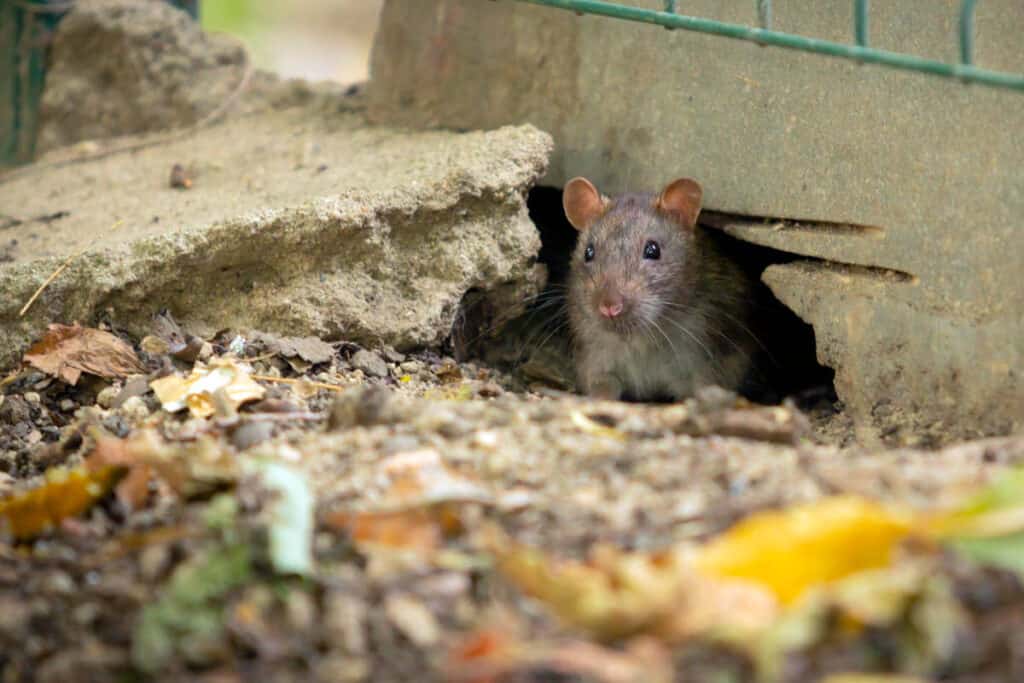
The first step to preventing a pest infestation is to look at what pests are most likely to cause problems. Here is a quick breakdown of the most common and most harmful pests found in warehouses:
- Rodents: Rats and mice have the ability to squeeze through small openings, gnaw on various materials, and contaminate your products with their droppings.
- Cockroaches: These notoriously resilient insects are attracted to warm, dark, and damp environments, making warehouses an ideal breeding ground. Cockroaches can spread diseases, contaminate products, and damage packaging materials.
- Birds: Pigeons, sparrows, and other birds can easily enter warehouses through open doors or windows, where they can build nests and cause damage to equipment or stored goods. Bird droppings can also be unsightly and pose health hazards.
- Ants: Various species of ants can be a nuisance in warehouses, particularly when they infest stored food products. They can contaminate goods and cause structural damage to your facility.
- Weevils: These small beetles are known for infesting stored grain products, causing significant losses if not properly managed. Adult weevils lay their eggs inside the grain kernels, where the larvae then feed and develop.
By understanding the different types of warehouse pests and knowing what signs to look out for, you can take proactive measures to prevent infestations and protect your inventory from damage.
Preventing an Infestation

Here are some of the most effective steps you can take to ensure that pests stay out of your warehouse:
- Exclusion: Ensure all doors, windows, and ventilation systems are properly sealed with weather stripping or mesh screens. Regularly inspect your warehouse for cracks or holes in the walls, floors, and ceilings that could serve as potential entry points for pests.
- Sanitation: Remove clutter, store products properly, and dispose of trash or waste regularly. This will help to minimize any potential hiding spots and breeding grounds for pests.
- Maintenance: Regularly inspecting and repairing damaged equipment, fixtures, and structures will help deter pests from making your warehouse their home. Pay close attention to areas where rodents might be attracted, such as pipes, heating ducts, or electrical equipment.
- Inspections: Monitoring rodent activity and other pests can help you identify problem areas early on, allowing for prompt intervention before infestations become widespread.
Warehouse Pest Control Solutions
In the event that the above preventative measures fail to keep out all pests, you should consider investing in professional pest control solutions and services tailored to your warehouse facilities.

These solutions are designed to combat common warehouse pests, such as ants, rodents, flies, cockroaches, and birds, with minimal disruption to your operations.
One key benefit of hiring professional pest control services is their expertise in Integrated Pest Management (IPM). IPM is a comprehensive approach to pest control that considers environmental, chemical, and biological factors.
This strategy enables pest control specialists to target specific pests while minimizing the use of harmful chemicals, promoting a healthier and safer environment for your warehouse.
When looking for industrial pest control services near you, the most important things to look for are experience in your industry and personalized attention.
You want a commercial pest control company that has experience working with similar situations, and that is able to address your personal needs.
Tabor Pest Control has been providing high-quality commercial pest control services to the Southern Alabama area for over 60 years.

We pride ourselves on our customer service and our personalized approach to doing business.
Frequently Asked Questions
What are the best methods to prevent pest infestations in a warehouse?
To prevent pest infestations in a warehouse, you should implement a comprehensive pest control program that includes:
- Regular inspections for signs of pest activity and entry points.
- Sealing any gaps and cracks around the perimeter.
- Keeping the area clean and free of debris to eliminate potential harborage sites.
- Properly storing food and raw materials away from walls and off the floor.
- Employing integrated pest management (IPM) techniques, including the use of traps, baits, and monitoring devices.
Which pests are most common in warehouses and storage facilities?
Some of the most common pests found in warehouses and storage facilities are rodents, flies, cockroaches, stored product pests, birds, and others.
Each pest can cause different issues, and it’s important to identify them early to implement appropriate control methods.
How often should a warehouse receive pest control treatments?
The frequency of pest control treatments depends on the specific needs of your warehouse. Factors that can influence the frequency include the size of the facility, the type of stored goods, and the level of pest activity.
For a typical warehouse, regular inspections and preventive treatments should be scheduled every month or quarter. However, high-risk facilities or those with a history of infestations may require more frequent treatments.
Are there any specific regulations for pest control in food storage warehouses?
Yes, there are specific regulations for pest control in food storage warehouses. These regulations are designed to ensure the safety of the food supply and may include guidelines for sanitation, pest exclusion, and treatment methods.
For instance, the U.S. Food and Drug Administration (FDA) has established regulations under the Food Safety Modernization Act (FSMA) that require food facilities to implement preventive controls for identified risks, including pest management.
How do I choose the right pest control company for my warehouse?
When choosing a pest control company for your warehouse, consider the following factors:
- Experience in warehouse pest management and familiarity with the specific pests in your area.
- Certification and licensing according to local regulations.
- The company’s reputation for effectiveness and customer service.
- The use of integrated pest management (IPM) techniques and environmentally friendly treatments whenever possible.
- Willingness to customize pest control plans to address the unique needs of your facility.
By considering these factors, you can find a pest control company that will help you maintain a pest-free environment for your warehouse.
References
- https://www.fda.gov/food/food-safety-modernization-act-fsma/fsma-final-rule-preventive-controls-human-food
- https://publications.jsi.com/JSIInternet/Inc/Common/_download_pub.cfm?id=3911&lid=3
- https://www.epa.gov/safepestcontrol/tips-selecting-pest-control-service
- https://www.epa.gov/safepestcontrol/choosing-pest-control-company
- https://www.ncbi.nlm.nih.gov/pmc/articles/PMC7760151/
- https://www.nyc.gov/site/doh/health/health-topics/pests-and-pesticides-building-owners.page
Tags: Commercial Pest Control, Warehouse
Posted in Prevention & Control | 3 Comments »
Commercial Pest Control for Restaurants: From Infestation to Immaculate – Your Defense Guide
Posted on: September 26th, 2023 3 CommentsPest control is absolutely essential for every restaurant. In an industry where a single pest sighting can destroy a business, it is crucial to find the best pest control for you.
This risk is more relevant now than ever before with the constant growth of customer reviews, allowing news to spread instantly. Of course, every restaurant wants a clean environment to cook and work in so that their customers and employees can have the best experience and highest quality food possible.
Apart from hurting your reputation and customer experience, pests can also cause huge problems regarding health regulations and inspections.
All of this is further complicated by the apparent fact that restaurants are full of food that attracts a wide variety of pests.
Causes of Pest Infestations in Commercial Kitchens
It is crucial to be aware of the major factors contributing to pest infestations so you can take proactive measures to maintain a clean and safe environment.
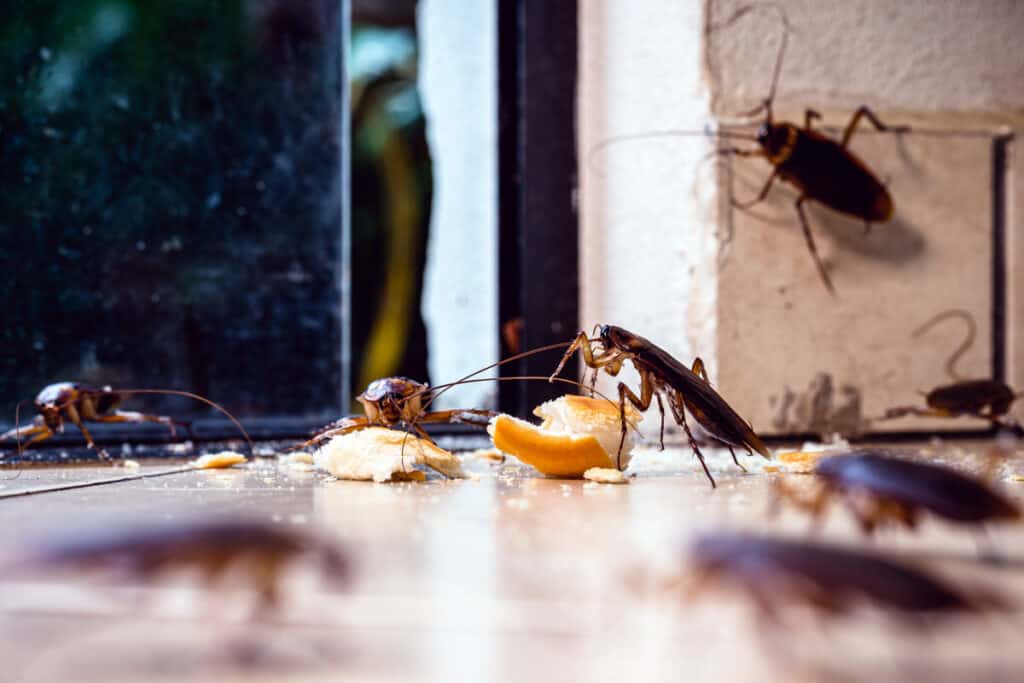
Here are some of the most common factors that can lead to pest infestations in restaurants, bars, and commercial kitchens:
- Poor sanitation practices: Inadequate cleaning and sanitation practices in your restaurant can attract pests. They are drawn to food debris, leftovers, and stagnant water sources.
- Inefficient storage systems: Pests find their way into your storage areas when food items are stored improperly, so be sure to keep your storage spaces well-organized and store all food products in sealed containers. Discard expired items regularly and maintain proper inventory management.
- Interior and exterior structural damages: Cracks, crevices, and other structural damages in your restaurant’s interior and exterior can become entry points for pests. Regularly inspect your building for any damages and seal them promptly to prevent pest infestations.
- Lack of proper waste disposal: Improper disposal of waste can serve as an ideal breeding ground for pests. It is vital to implement an efficient waste management system and keep the waste disposal area clean.
- Unsealed doors and windows: Open doors and windows can provide easy access for pests to enter your establishment. Ensure that door and window screens are properly sealed and install door sweeps if necessary.
How to Reduce the Risk of an Infestation
Proper restaurant pest control involves a combination of preventive measures and timely intervention.
1. Frequent Inspections
You should routinely inspect your premises for any signs of pest activity and implement effective strategies to keep them at bay.
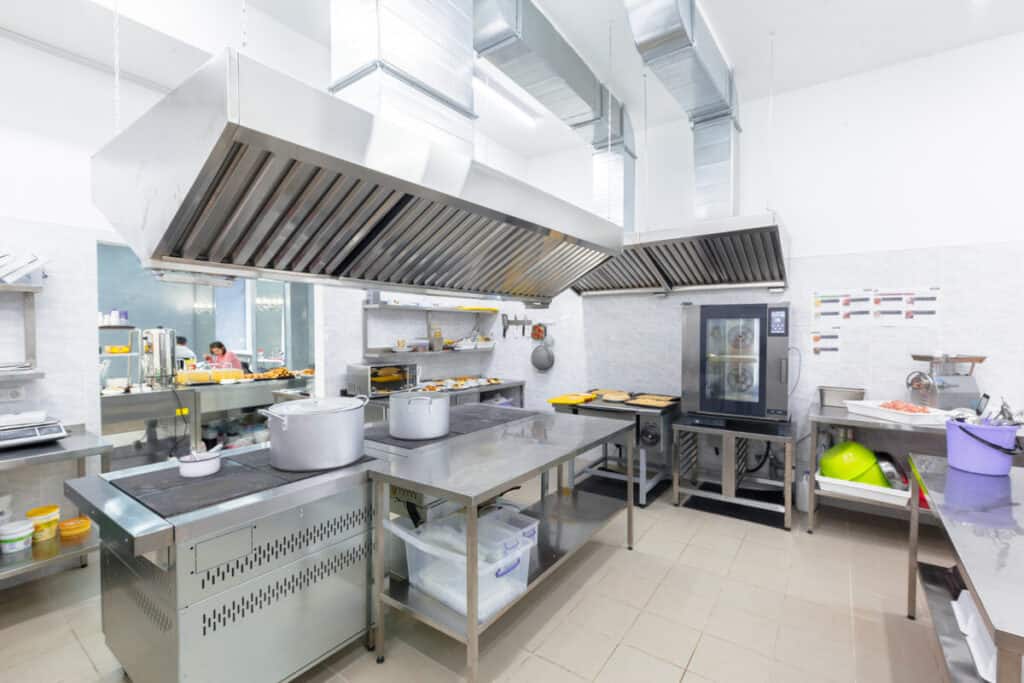
This includes ensuring your facility is thoroughly cleaned and sealed, managing waste properly, and storing food securely.
2. Educate Your Staff
Educate your employees on the importance of pest control as well, making them aware of the potential consequences of inadequate pest management.
Empower them to take necessary precautions and encourage them to report any pest sightings immediately. This collaboration will help maintain a clean and healthy environment for both staff and guests.
3. Implementing Hygiene and Sanitation Practices
Establish a regular cleaning schedule to ensure that all areas, including food storage and preparation spaces, are kept free of food scraps and spills.
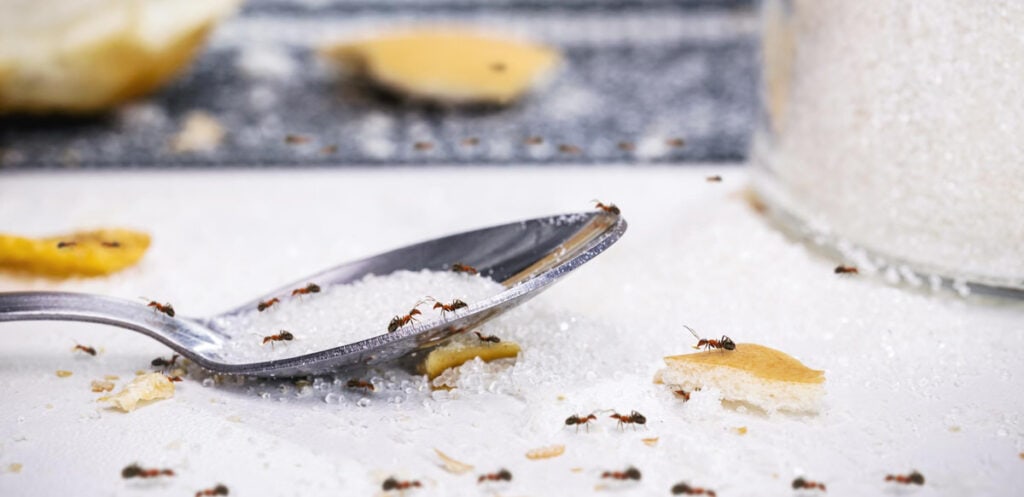
Dispose of waste properly, and make sure that all trash is stored in sealed containers. Regularly clean your kitchen equipment and floors, and ensure that your staff practices good personal hygiene.
4. Structural Repairs and Alterations
Inspect the physical structure of your restaurant and make any necessary repairs to prevent pest entry points. This may include sealing gaps around doors and windows, repairing damaged screens, and fixing any holes in walls or ceilings.
Providing proper ventilation and drainage can also help keep pests at bay.
An essential aspect of integrated pest management involves analyzing the layout of your establishment to identify areas that might be enticing to pests.
Making slight alterations, such as redesigning waste storage areas or relocating food storage facilities, can also play a role in deterring pests.
5. Proactively Monitoring
To effectively manage pest infestations in your restaurant, implementing a comprehensive monitoring program is crucial.
A well-designed program will help you identify pest concerns early, allowing you to address them before they escalate into larger issues.
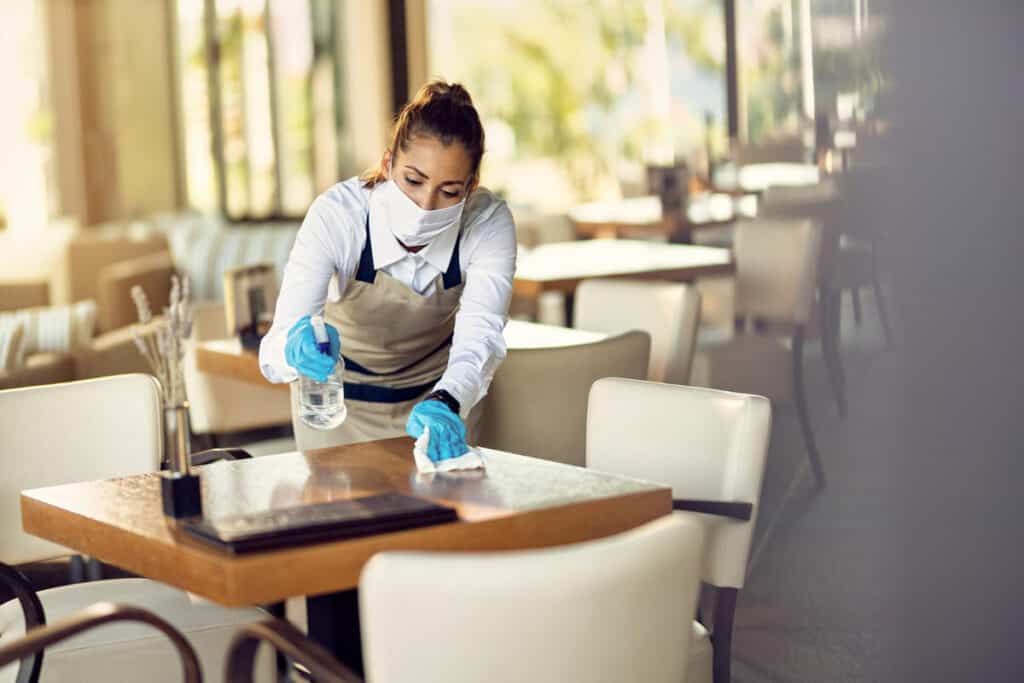
To begin, establish an integrated pest management (IPM) approach, which focuses on proactive measures such as regular inspections, sanitation, and exclusion techniques.
In addition to preventing pests, IPM minimizes the need for pesticides, reducing the risk of contamination in your restaurant.
Remember, an effective pest control program is an essential aspect of your restaurant’s overall success.
By prioritizing pest control and implementing the best practices, you contribute to the well-being of your employees and guests, protecting your restaurant’s reputation and maintaining customer satisfaction.
Use of Pest Control Products
Many pest control products on the market can help you prevent and manage infestations. These may include traps, bait stations, insecticides, and rodent control products.
It’s crucial to select the products that are best suited for your restaurant’s specific needs and follow all safety guidelines and label instructions when using them.
Working with a reputable pest control service can be an effective way to ensure that your restaurant remains pest-free.
Professional pest control experts can perform regular inspections, recommend customized preventative measures, and provide additional support as needed to help keep your business running smoothly and safely.
Choosing a Professional Pest Control Service
It can be difficult to determine which company provides the best commercial pest control for restaurants in your area, but here are some of the most important factors to consider.
Look for companies that specialize in commercial pest control and have experience working with restaurants and the food service industry.
Read customer reviews to gauge their success in managing pest problems in other establishments.
Pay attention to how they address individual concerns and resolve issues. This will give you an idea about the quality of their customer service and whether they can cater to your restaurant’s specific needs.
Additionally, ensure the pest control service you choose complies with industry standards and local health codes.
A service provider that understands and adheres to food service regulations will be an asset in maintaining a sanitary and pest-free environment.
Finally, communication is key in choosing a pest control service.
Your chosen company should be easy to reach and prompt in answering your questions or addressing any issues that may arise. Good communication will help build a strong long-term relationship.
Tabor Pest Control is a leading commercial pest control provider that has been serving the Southern Alabama area for over 60 years.

We specialize in offering personalized treatment to keep pests out of your kitchen so you are free to provide your customers with the best experience possible.
Frequently Asked Questions
How do restaurants effectively manage pest problems?
To effectively manage pest problems in your restaurant, you need to implement an Integrated Pest Management (IPM) approach.
IPM involves regular inspections, identifying problem areas, practicing proper sanitation, and using appropriate pest control measures. By taking prompt and proactive actions, you can prevent pests from becoming a significant issue in your establishment.
What are the most common pests found in restaurants?
Some of the most common pests found in restaurants include cockroaches, rodents, flies, and ants. These pests are attracted to food and moisture, making restaurants a prime target for infestations.
Your restaurant’s reputation can be severely damaged by pest sightings, as they can carry harmful diseases and bacteria.
How can a restaurant prevent cockroach infestations?
Preventing cockroach infestations in your restaurant starts with cleanliness and sanitation. Be sure to clean up food spills and crumbs immediately, seal any cracks or crevices in the building, and regularly empty garbage cans.
Also, make sure to store food in sealed containers and promptly address any moisture or plumbing issues since cockroaches are attracted to water.
What measures are taken in restaurant pest management?
Measures taken in restaurant pest management include:
– Regular inspections to identify and address potential pest entry points and problem areas.
– Ensuring proper sanitation and cleanliness within the establishment.
– Using pest control products and methods, such as traps, baits, or insecticides, when necessary.
– Monitoring and adjusting pest control measures to ensure their ongoing effectiveness.
Which commercial pest control products are most effective for restaurants?
The most effective commercial pest control products for your restaurant will depend on the specific pests you’re dealing with. Some common options include insecticides, baits, traps, and insect growth regulators.
Be sure to select products that are suitable for use in food preparation and service areas, following proper guidelines to ensure the safety of your customers and staff.
What should be considered when choosing a pest control service for a restaurant?
When choosing a pest control service for your restaurant, consider the following factors:
– The company’s expertise and experience in treating pest problems in restaurants and other foodservice establishments.
– Their use of safe and effective pest control methods, as well as compliance with local regulations.
– Customer reviews and testimonials to gauge the quality of their service.
– Availability for regular inspections and treatment, as well as prompt response to urgent pest issues.
– Transparent and reasonable pricing structure.
References
- https://www.epa.gov/safepestcontrol/dos-and-donts-pest-control
- https://www.nyc.gov/assets/doh/downloads/pdf/rii/keep-pests-out-of-food-establishments.pdf
- https://www.cdc.gov/coronavirus/2019-ncov/php/rodents.html
- https://www.cdc.gov/healthypets/pets/wildlife/rodent-control.html
- https://www.nj.gov/dep/enforcement/pcp/bpo-appcom.htm
Tags: Commercial Pest Control, Restaurants
Posted in Prevention & Control | 3 Comments »
Commercial Pest Control Near Me: Safeguarding Your Business, One Treatment at a Time
Posted on: September 5th, 2023 3 CommentsPests can be a significant problem for businesses, causing damage to properties and putting employees and customers at risk. As a family-owned business since 1958, we understand the importance of taking care of your company by controlling these insects.
Tabor is the largest locally owned and operated pest control company in the Southeast U.S. and specializes in situation-specific solutions to problems.
We offer various commercial pest control services and have experience dealing with extreme environments, from factories to large-scale facilities.
Why Commercial Pest Control is Important
Pests can cause a variety of problems for businesses, including property damage, food contamination, and the spread of disease.
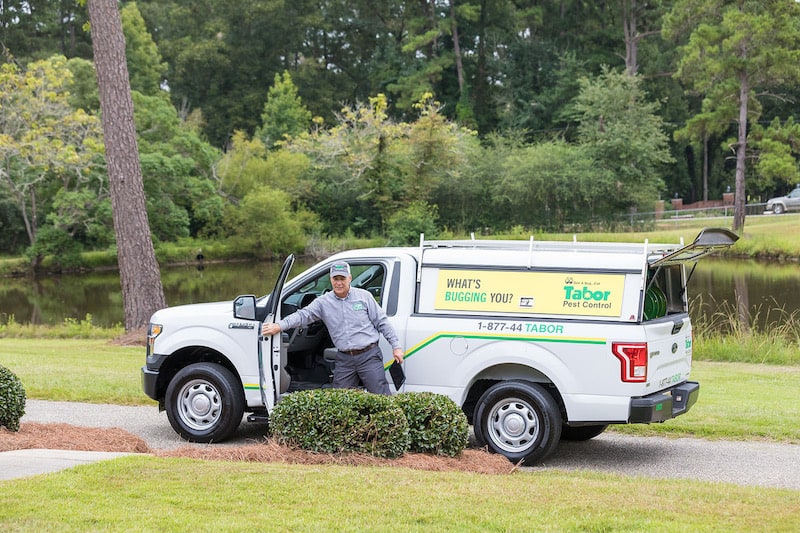
Infestations can quickly become a nightmare by damaging furniture and electrical wiring, creating health code violations, spreading disease, and hurting your overall customer experience.
Commercial pest control can prevent these problems by identifying and eliminating pests before they cause serious problems.
Our Commercial Pest Control Services
At Tabor Pest Control, we provide professional pest control services for businesses of all sizes.
- Our team of experts is trained to handle a variety of pests commonly found in commercial settings.
- We offer comprehensive inspection, treatment, and prevention processes to ensure that your business remains pest-free
1. Commercial Pest Control

Tabor Pest Control offers complete, customized pest control and prevention services for restaurants, schools, healthcare, property management, or any other kind of business of any size.
2. Pre Construction Soil Treatment

Tabor offers ground soil treatments that create a product barrier, blocking all future points of entry for termites trying to gain access into the building.
No matter the type of building foundation, whether it is a slab, basement, or crawl space, we can help.
3. Pre Construction Wood Treatment
Reduce the risk of a termite infestation by putting their food source out of reach.
Pretreating the wood eliminates the subterranean termite food source and has shown incredible effectiveness.
Why Choose Tabor?
Regarding commercial pest control services, you want a company you can trust to get the job done right.
Tabor Pest Control has been serving the local community since 1958, and we have built a reputation for providing effective, reliable pest control services to businesses of all sizes.

In our 60+ years of serving the Southeast Alabama and Southwest Georgia area, we have developed a deep knowledge of the common problems that businesses face here and the accompanying solutions.
From that experience, we have also learned that your business comes first, which is why we offer both flexible scheduling options and emergency services.
Every business has its own unique needs, and we will work to meet yours.
Frequently Asked Questions
What are the most effective pest control methods for commercial properties?
This will depend heavily on the type of pest infestation, but some of the most common methods include the use of baits, traps, and insecticides.
Integrated Pest Management (IPM) is also a popular approach that involves a combination of preventive measures, monitoring, and targeted treatments.
How often should commercial pest control services be scheduled?
The frequency of commercial pest control services depends on several factors, including the type of property, the level of pest activity, and the type of pest infestation.
Most commercial properties require monthly or quarterly services to maintain a pest-free environment
What types of pests are commonly found in commercial properties?
Some of the most common pests found in commercial properties include rodents, cockroaches, ants, termites, bed bugs, and flies. However, other pests like spiders, moths, and beetles can also cause problems.
What is the average cost of commercial pest control services?
The cost of commercial pest control services varies depending on the size of the property, the severity of the infestation, and the type of treatment required.
What qualifications should I look for in a commercial pest control company?
When choosing a commercial pest control company, it’s important to look for a licensed and insured provider with experience in treating commercial properties.
Additionally, the company should have a good reputation, offer a variety of pest control services, and provide a guarantee for their services.
How can I prevent pests from returning after a commercial pest control treatment?
To prevent pests from returning after a commercial pest control treatment, it’s important to maintain good sanitation practices, seal any cracks or openings in the building, and eliminate any sources of standing water.
Regular inspections and treatments can also help prevent future infestations.
References
- https://www.nifa.usda.gov/topics/pest-management
- https://cms.ctahr.hawaii.edu/epp/Education/Study-Guide-Packets/APC-Core/APC-Unit1
- https://www.epa.gov/safepestcontrol/dos-and-donts-pest-control
- https://marketbusinessnews.com/pest-control-commercial-property/234853/
- https://bpca.org.uk/pest-advice/commercial
Tags: Commercial Pest Control
Posted in Prevention & Control | 3 Comments »
